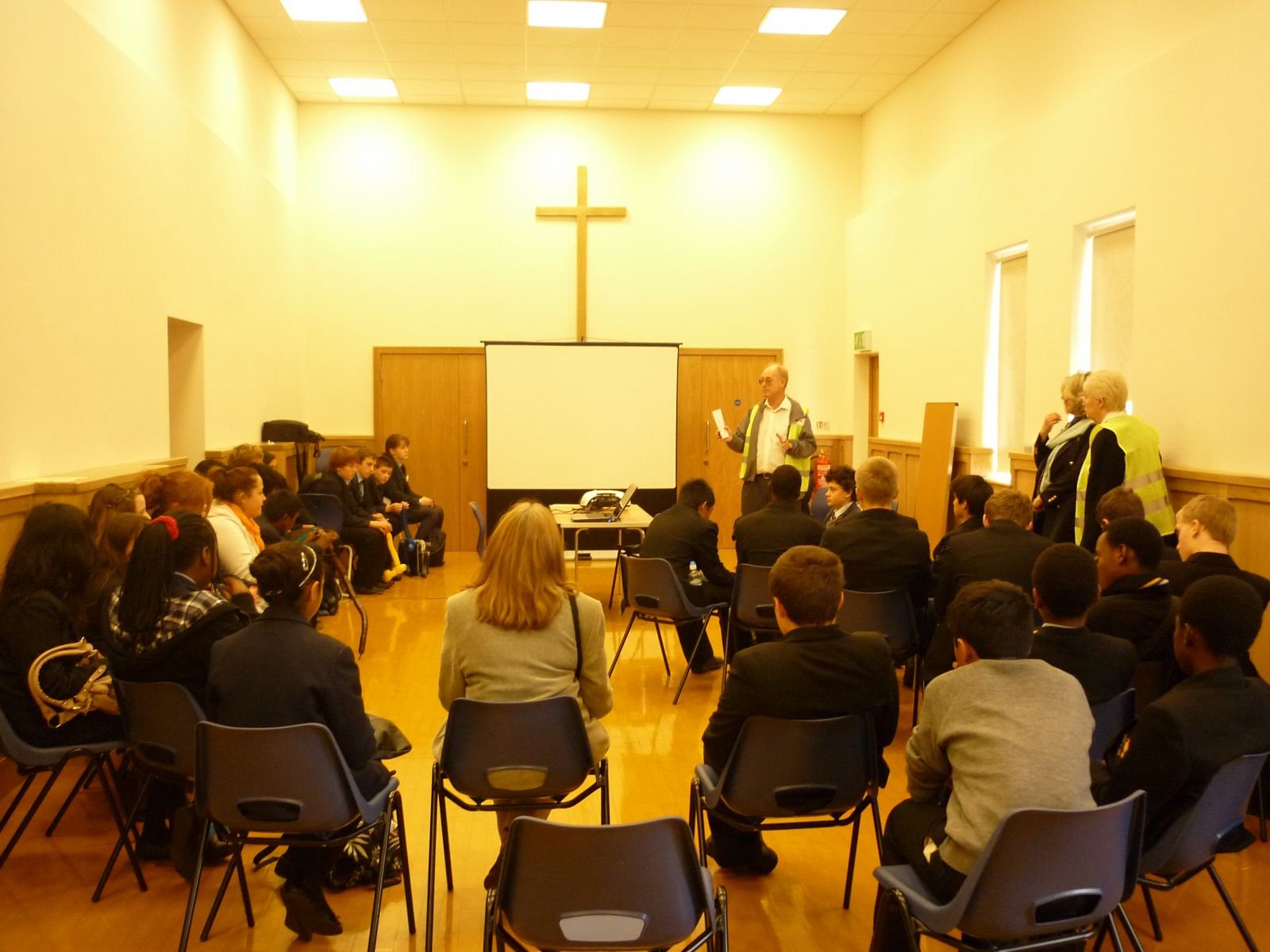Help with making decisions.
 Julien Greene describes the chain of personal events, magical and intimate, in which all of us perceive the vocation from within, like a call to give the best of ourselves to the best causes. Sometimes we receive this call openly and sometimes we reject it. A page from his diary describes this well: “That day from your infancy, whilst you played alone in your mother’s bedroom and the sun shone on your hands, a certain thought came to you, like a king’s messenger, and you received it with happiness, but later on, you rejected it. That thought would have kept you, sustained you. When we walked under the banana tree on that street and your cousin told you those words, you understood immediately that those words came from God, but later you forgot them because they contradicted your desire for pleasure. And that letter that you ripped up and threw away would have dissipated those doubts, but you didn’t want to change…”
Julien Greene describes the chain of personal events, magical and intimate, in which all of us perceive the vocation from within, like a call to give the best of ourselves to the best causes. Sometimes we receive this call openly and sometimes we reject it. A page from his diary describes this well: “That day from your infancy, whilst you played alone in your mother’s bedroom and the sun shone on your hands, a certain thought came to you, like a king’s messenger, and you received it with happiness, but later on, you rejected it. That thought would have kept you, sustained you. When we walked under the banana tree on that street and your cousin told you those words, you understood immediately that those words came from God, but later you forgot them because they contradicted your desire for pleasure. And that letter that you ripped up and threw away would have dissipated those doubts, but you didn’t want to change…”
Such occasions occur in all young people and they have a special importance. They are seconds which decides one’s future. They are accidental happenings but are the fruit of a chain of events subtly linked together. They have a history.
In effect the most important decisions often result from thousands of small happenings which occur without us even realising. All the numerous and trivial negativities of every day are knitted together, little by little, to form an intricate core. And on one day perhaps, from a minimal and insignificant success, a surge of determination can occur which seems to grow and mature in one’s mind. It occurs spontaneously but, in reality, it expresses the result of a history of everyday events which have been developing for some time. In this moment the conscience is partially tangled in these nets which have been sewn together over time and which impede the expression of true freedom.
In a similar way, the vocation sews another deep network, from the most elevated of aspirations to the most insignificant act of generosity, and this network blossoms one day into the most important of personal decisions. Just as the habit of saying ‘no’ in the moment of truth usually leads to another ‘no’, so does the habit of saying ‘yes’ to the calls of truth rectify one’s life.
 The young people with whom we work live with their peculiar succession of decisions which mould them in a particular way. And it is not always easy to make the right decisions. It would be simplistic to think that when they close off their hearts to the call of God, they immediately have a sense of anxiety or remorse. In fact they may actually register an initial alleviation internally, a sensation of freedom and autonomy, as though a weight has been lifted off them and a heavy responsibility has left them. The rejection of the vocation is not always accompanied by remorse. He who lives in an egocentric world lives comfortably. To say ‘no’ to these calls from God can seem attractive whilst the vocation can seem mundane or boring. Only with time, one discovers the hidden happiness which the vocation has to offer, and it is then, that it is hard to break free of such happiness.
The young people with whom we work live with their peculiar succession of decisions which mould them in a particular way. And it is not always easy to make the right decisions. It would be simplistic to think that when they close off their hearts to the call of God, they immediately have a sense of anxiety or remorse. In fact they may actually register an initial alleviation internally, a sensation of freedom and autonomy, as though a weight has been lifted off them and a heavy responsibility has left them. The rejection of the vocation is not always accompanied by remorse. He who lives in an egocentric world lives comfortably. To say ‘no’ to these calls from God can seem attractive whilst the vocation can seem mundane or boring. Only with time, one discovers the hidden happiness which the vocation has to offer, and it is then, that it is hard to break free of such happiness.
Therefore, it is imperative that someone teaches young people to follow their own heart and to keep watch over its sensibilities. If this does not happen, they will very soon become possessed by ideas and feelings which may have a negative effect on them.


 Votes : 0
Votes : 0









